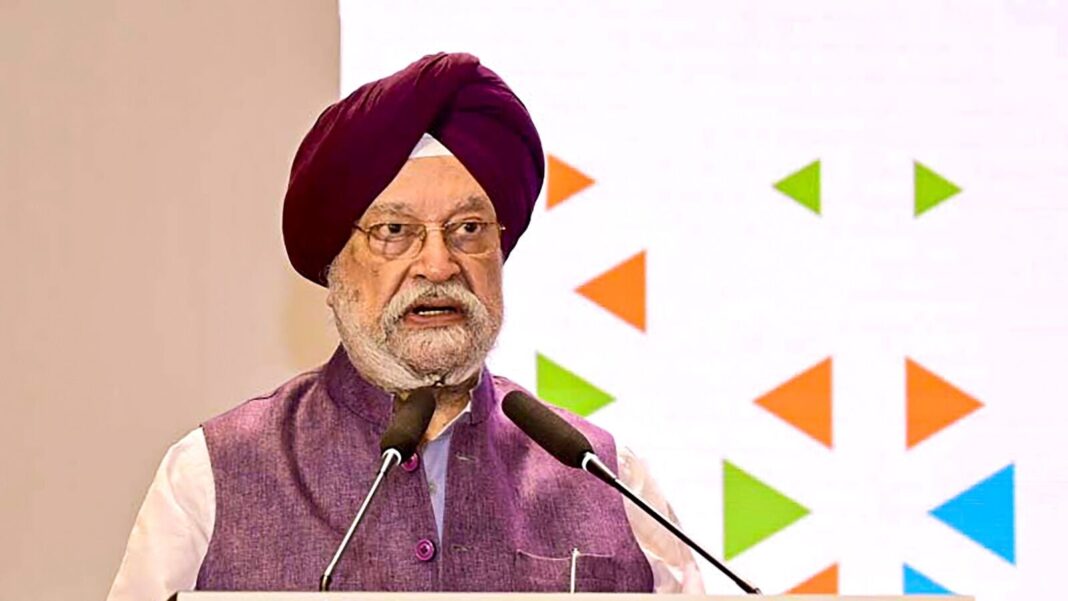New Delhi: The Rajya Sabha on Tuesday passed a landmark bill with sweeping measures aimed at making it easier to do business in the oil and gas exploration and production (E&P) sector and attract greater investments.
The Oilfields (Regulation and Development) Amendment Bill, 2024, also proposed to delink petroleum operations from mining operations, which is expected to bring in more investments into the sector.
The bill was passed by a voice vote.
In a debate on the bill, petroleum and natural gas minister Hardeep Singh Puri said: “We need oil and gas sector (for) 20 more years. We need to bring this legislation here to provide a win-win confidence not only to our own operators but also to foreign investors so that they can come and do business here with view to benefit everyone.”
Describing the amendments as “landmark” in a post on social media platform X, the minister said they will strengthen and propel India’s energy sector.
According to the government, as the global energy scenario and the hydrocarbons landscape has dramatically changed, there is a need to amend the Act to reflect current realities, national priorities, promote ease of doing business, decriminalize provisions and align India’ E&P framework with global practices.
“Since petroleum (crude oil/ natural gas) is found in the pore spaces of subsurface rocks and is extracted by drilling delinking of terms like ‘mine’ ‘quarried’ or ‘excavated’ as referred to in the current Act will remove ambiguity and introduce Ease of Doing Business into the sector which is more technologically driven,” Puri said in a series of tweets.
The original Act from 1948 defined petroleum and natural gas as mineral oils. This bill expands the definition to include coal bed methane, oil shale, shale gas, shale oil, tight gas, tight oil and gas hydrate, but does not include coal, lignite and helium occurring in the petroleum process.
“The term ‘mineral oil’ is traditionally understood to be natural gas and petroleum. As unconventional hydrocarbon resources have been discovered and developed, the definition needs to be updated to reflect the modern understanding of the term,” Puri said.
Also read | Petroleum ministry recommends GST on natural gas
Further, the bill alters the previously used term ‘mining lease’ and introduces ‘petroleum lease’, which allows companies to explore, prospect, produce, make merchantable, and dispose of mineral oils. However, the existing mining leases in use will remain valid.
As small operators and new entrants often face difficulties in carrying out operations due to high costs of infrastructure and facilities, the bill proposes to enable the Centre to make rules to allow sharing of production and processing facilities and other infrastructure by two or more lessees.
Also, in a bid to bringing in stability and investor confidence, the bill assures that the terms of the lease shall remain stable for the entire duration of the lease and will not be altered to the investor’s disadvantage. The amendments also propose alternative dispute resolution mechanisms for efficacious dispute resolution methods catering to investors’ needs and expectations.
The bill’s statement of object noted that the existing law was framed in a very different global energy context, and requires to be amended to meet India’s needs and aspirations for energy access, security and affordability.
Noting that there is an urgent need to increase domestic production of oil and gas to meet rising demand and reduce import dependence, the bill said: “In order to unlock valuable mineral oil resources, it is necessary to attract investment in the sector to infuse necessary capital and technology for expediting petroleum operations in the country by creating an investor friendly environment that promotes ease of doing business, prospects for exploration, development and production of all types of hydrocarbons, ensures stability, promotes adequate opportunities for risk mitigation, addresses energy transition issues including next-generation cleaner fuels and provides for a robust enforcement mechanism for ensuring compliance of the provisions of the said Act.”
The proposed amendments are in line with the government’s efforts to boost domestic production and lower import dependence. India is a net importer of crude oil, dependent on foreign sources for 85% of its energy requirement.
Catch all the Business News, Politics news,Breaking NewsEvents andLatest News Updates on Live Mint. Download TheMint News App to get Daily Market Updates.
MoreLess





